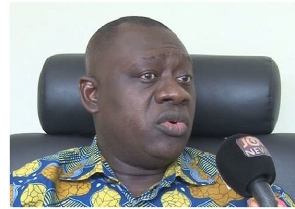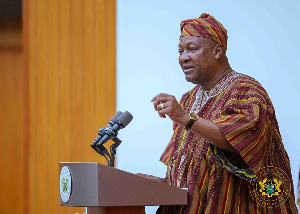The government has given the Electoral Commission (EC) the needed support to organise the election of District Assembly and Unit Committee Members as well as the Referendum.
Additionally, the government through the local government ministry has taken the necessary steps to ensure that people are well educated on the processes involved, especially the referendum from September 30 to December 16.
The elections of the District Assembly and Unit Committee Members form the critical core of the country’s decentralisation process by way of helping in the exercise of political and administrative authority in the district, provide guidance, give direction, and supervise the other administrative authorities in the district.
It will be held on December 17.
Mr Osei Bonsu Amoah, a Deputy Minister of Local Government and Rural Development, speaking in an interview with the Ghana News Agency in Accra, said all preparatory activities were on course.
As part of the preparations, he said the Ministry engaged editors from major news outlets to educate them on the Referendum to enable them spread the news and also share ideas on the information dissemination.
“We have almost completed the procurement process and very soon the educational adverts will be screening on various channels,” he added.
Mr Amoah explained that the three, the District Assembly and Unit Committee Members as well as the Referendum, would be held on the same day to reduce cost.
“It is not too different from our regular elections. We have had Parliamentary and Presidential elections on the same day for the Assembly and Unit Committee and so to save money it is prudent to add a ballot box for the referendum to achieve the same objective.
“With this, we do not need to conduct the referendum on a separate day, spend resource and use same logistics,” he noted.
He stated that the powers and functions of the Central government were lawfully redistributed to other government units with the aim of allowing for grassroots participation in the governing process of the nation, precisely their community.
According to Mr Amoah, each Metropolitan, Municipal and District Assembly was required by law to have persons representing the electoral areas that make up such a district, municipal or metropolitan and it was backed by Section 2 of the District Assembly Elections Act 1994, Act 473.
He noted that per the local level structure other members were elected to form the Unit Committee that served as an advisory and supporting team for the Assembly Member.
“The Assembly and Unit Committee members administered some functions on behalf of the District Assembly and to a larger extent the central government. Lawfully, they have the powers to discharge duties on behalf of government in the electoral area,” he stated.
To deepen the local governance system, Mr Amoah said government would continue to take steps to reform the local government as well as address the issues raised in the 2015 Coalition of Domestic Election Observers (CODEO) report.
He noted that the report made suggestions such as making the district assembly and unit committee elections partisan in order to increase voter turnout and inject healthy competition.
“Because these local level elections are not partisan, we continue to record low turnout. Sometimes the turnout is as low as 25 per cent,” he said.
Mr Amoah said it was good to make it partisan, because if political parties were involved, they would vet their candidates and educate more people especially their members to go and vote.
He noted that candidates contesting on the tickets of their political parties would put together a manifesto and engage people to participate in the process adding, “Much importance will be attached to it”.
Politics of Wednesday, 2 October 2019
Source: ghananewsagency.org













